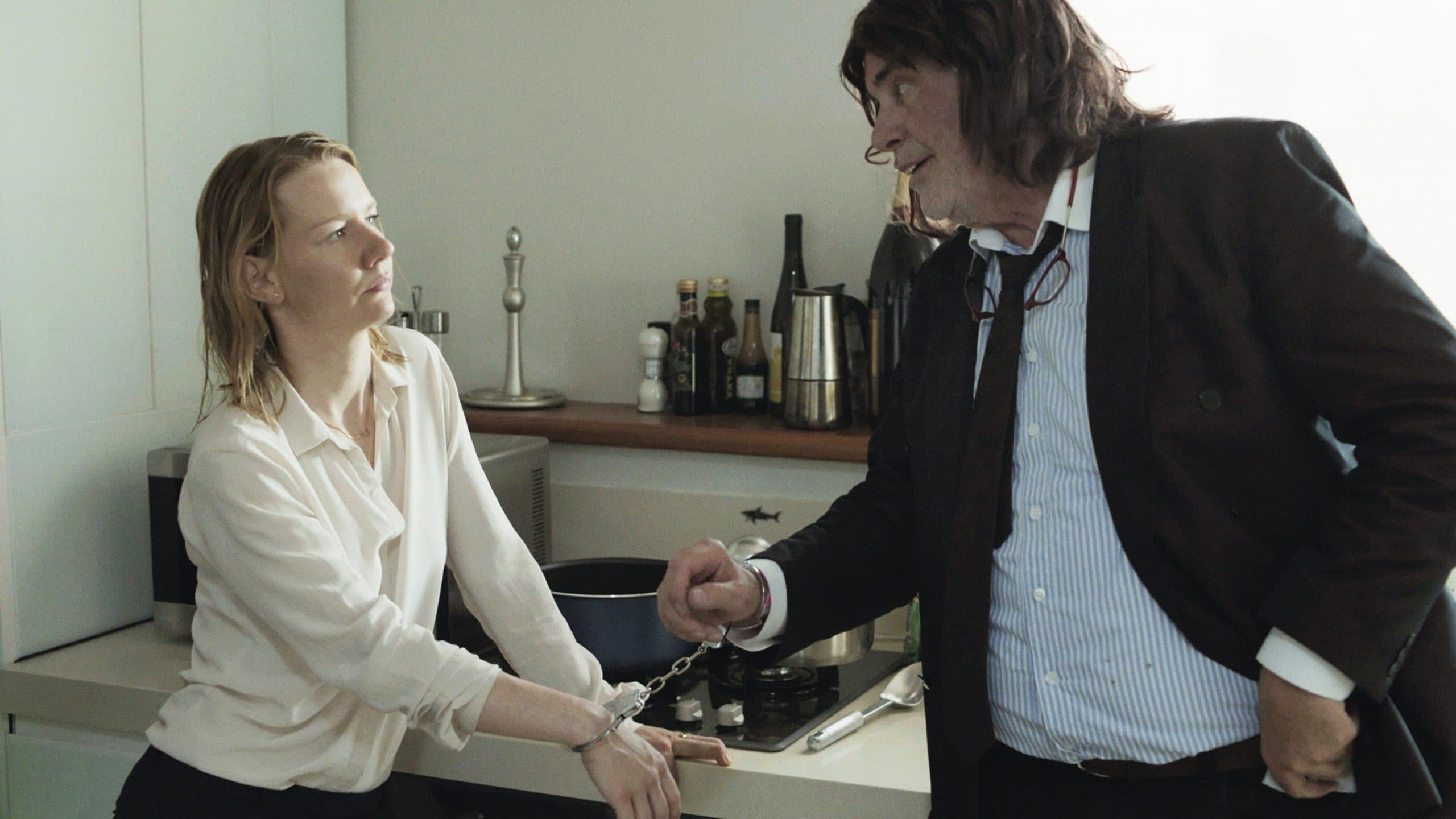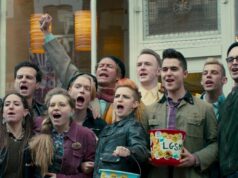With two exceptional central performances, this profoundly nuanced character study shouldn’t have been so overlooked at the Festival of Cannes
Toni Erdmann (2016)
Written and directed by Maren Ade. Starring Peter Simonischek, Sandra Hüller, Lucy Russell, Michael Wittenborn, Thomas Loibl, Trystan Pütter, Hadewych Minis, Ingrid Bisu, Vlad Ivanov and Victoria Cocias.
“Are you really human?” the dismayed character Winfried Conradi played by Peter Simonischek asks his workaholic daughter Ines (Sandra Hüller) after she ditches him for an entire day to go shopping with a client’s wife. She works as an outsourcing consultant in Bucharest, Romania, and he travels there all the way from Germany in a desperate attempt to reconcile with her. It is a line that carries a universe of meaning in each word, much like the film itself. Toni Erdmann, written and directed by Maren Ade (The Forest for the Trees, Everyone Else), is actually a work of profound sensibility in which every shot (hell, every line!) seems to offer a thousand nuances that I honestly don’t remember having seen in a long time.
Consider, for instance, another scene. When Ines learns that her father’s dog died, she asks him why he didn’t tell her. His answer is like a slap to the face: “I don’t always have time either.” There is so much in this single sentence and so many layers of resentment (and hope) in his voice that I had to pause for a moment to think about all I had just heard. In other words, this is the reason why I watch films. Yet, the best scene in Toni Erdmann is perhaps another, a business meeting in which Ines’ client subtly shows how appreciative he is of her work by calling her a “specialist in shopping.” As Winfried introduces himself to said client as being “only the father,” he follows it with a series of awkward jokes that include having a “substitute daughter.”
You see, Winfried loves playing pranks, and his eccentric, dark humor is definitely not everyone’s cup of tea. Earlier in the film, when he shows up for lunch at his ex-wife’s place, his face is covered with paint, and he explains jokingly that he has “an upset stomach.” (Notice the way his ex-wife’s husband looks at him for a brief second.) This is a character we fall in love with little by little as we realize how much he wants to participate in his daughter’s life even in the most insane way possible, often hiding out of sight or pretending to be someone else with a wig and fake teeth. That is when Toni Erdmann, one of his pranks, comes in — and Simonischek does a fantastic job making us laugh at and feel sorry for this new persona at the same time.
Sandra Hüller also delivers an amazing performance, playing a character who could have been detestable but fortunately is not. It is a difficult thing to make us empathize with someone who is evidently selfish and mediocre in her work, but she nails it. Always on her phone and holding on to her professional career above all else, Ines is appalled by the idea that her father would stay in Romania for a month, and she only wants him around when it is convenient for her (that is, the moment her client says so). When it comes to her work, she is resigned to the fact that she is doing the dirty job for someone else (though deep inside she doesn’t feel comfortable with that), and she can’t even stand having sex with her colleague Tim (Trystan Pütter) anymore.
And that is what makes a key scene that takes place later on so beautiful, when Ines sings Whitney Houston at the top of her lungs at an Easter-egg painting party — first with hesitation, then embracing the revealing lyrics and finally storming out of the place without saying goodbye to anyone when we notice how this whole experience affected her on a personal level. This, my friends, is how you write a script. Nuance is everything, and we realize how special Toni Erdmann is when father and daughter have a conversation in a limo about the way they each see one specific situation from very different perspectives. Moments like this help make them human, three-dimensional and likable.
And what can we say about the nudity (also metaphorical, of course) in one of the funniest scenes? Ade deserves credit for the way that she stretches the absurdity of that sequence much past the point of embarrassment — and I love how in the following scene she lets us imagine what Winfried is feeling without showing us his face. And since I mentioned the superb humor, how could we not laugh at the incredible moment when Ines justifies ditching her father by telling him that shopping is better than visiting the Palace of the Parliament? Or when he sneaks into Ines’ place and almost gives her a heart attack? Or a hilarious fart scene that is too bizarre to be real? Not to mention a joke that Winfried cracks at someone’s funeral.
Using only diegetic music and taking her time to tell a long story that never feels long, Ade directs Toni Erdmann with an impressive intuitiveness. The comedy and drama blend always so well, the pacing is perfect and even her sense of framing is full of nuances, with her camera emphasizing Toni’s solitude by placing him in corners or re-framing him within the frame (with walls and trees). It is a pity, though, that this excellent film was so overlooked by the jury at the Festival of Cannes, when in fact it must be remembered as a spectacular example of what cinema can do.





